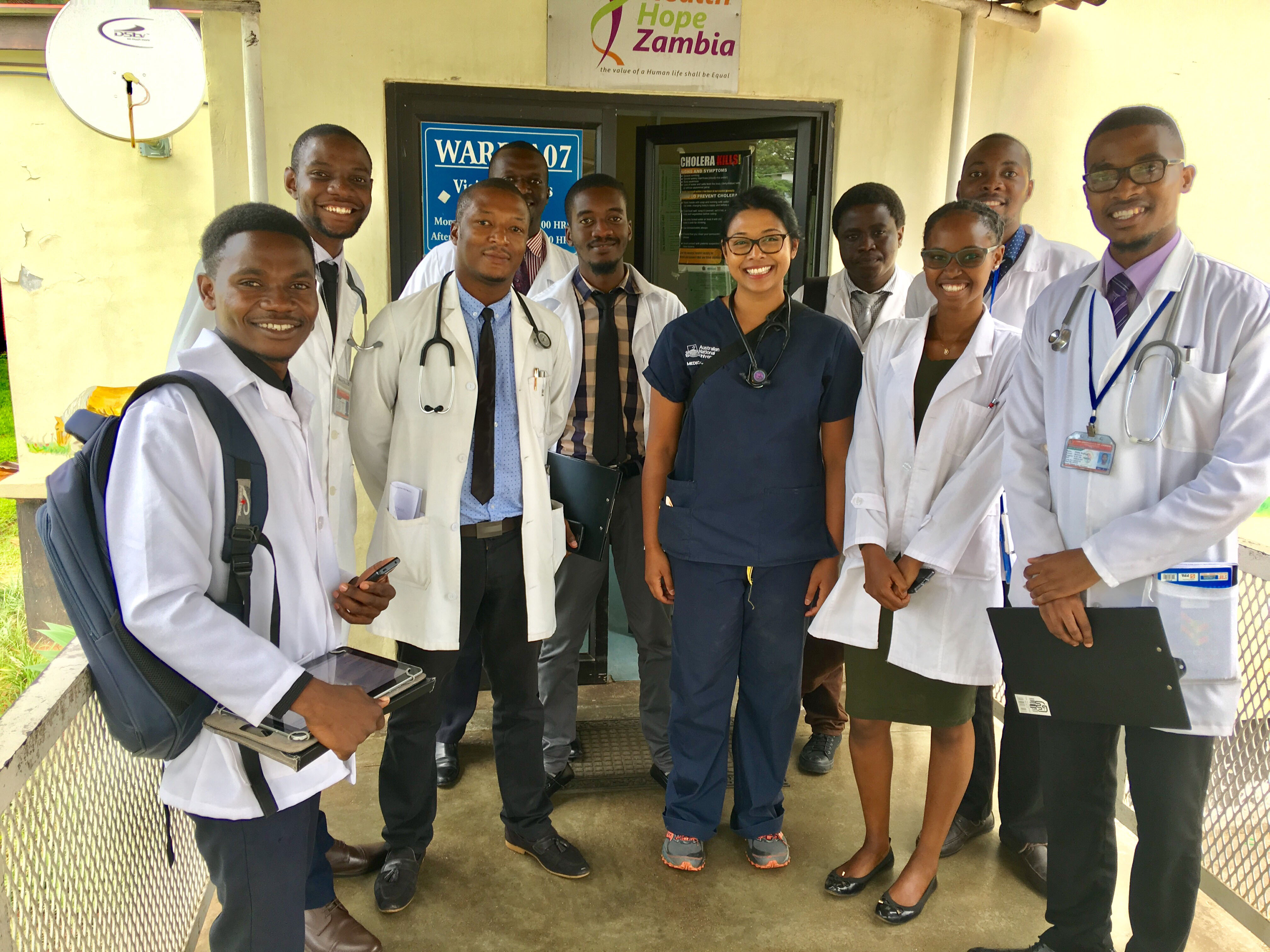Paediatrics elective, Lusaka University Teaching Hospital, Zambia

I had the opportunity to travel to Zambia for my medical elective. I spent 4 weeks in Lusaka’s University Teaching Hospital (UTH). The paediatrics department has 350 beds in total; sometimes accomodaHng 2-3 patients per bed. The department is further divided into a number of specialty units. I rotated through four of these units:
- General paediatrics
- Haematology
- ICU and
- Malnutrition.
In addition to general ward duties, each unit is also assigned a 24 hour shift in the Emergency Department every week. The clinicians were inspiring, and keen to teach.
The 24 hour shift in ED was my favourite day of the week; I was expected to clerk patients and present their cases to the supervising doctors. The medicine was incredible! I palpated so many spleens and even examined a 2 month old baby with a parasitic twin on its lower back! Sooo cool.
Although my brain was happily engaged, my heart confronted a difficult reality.
Patients commonly presented with late stage disease, and clinicians were challenged with providing care with very limited resources. For example, UTH had completely run out of blood culture bo`les for the enHrety of my placement; the haematology unit frequently ran out of IV lines; and it was too expensive for the malnutrition unit to regularly monitor electrolytes.
Many children died.
The most difficult loss for me was a 5 day old baby girl, who came in with neonatal sepsis. She was small, very yellow, and had a tendency to stop breathing. Her mother was 17 years old.
In Zambia, families bring their own sheets and bedding into the hospital. When a child dies, they are wrapped in one of the thicker blankets and the little bundle is tied together with string. The mother wails, and all the other mothers in the ward support her in her grief. It’s a heartbreaking insight into a beautiful community spirit.
Four little bundles were made during that shift.
Since that shift, I often think about what that baby’s life would have been like under different circumstances. A different country? A different health system? Different resource availability? It all seems very unlucky for that baby and her family. Personally, it feels disconcerting to be a contributing factor in that bad luck — perhaps she would have done better under someone else’s care.
We are very fortunate to have access to such an amazing healthcare system in Australia.

